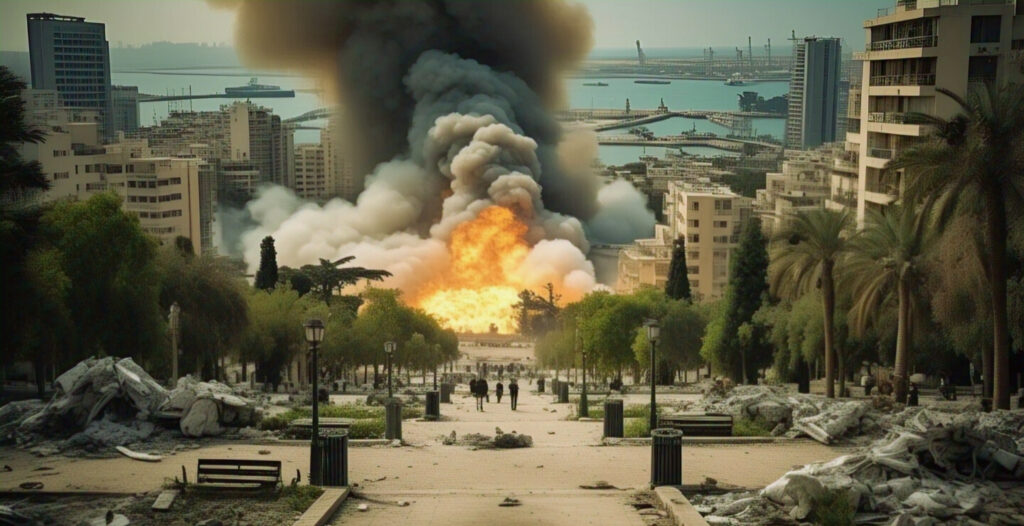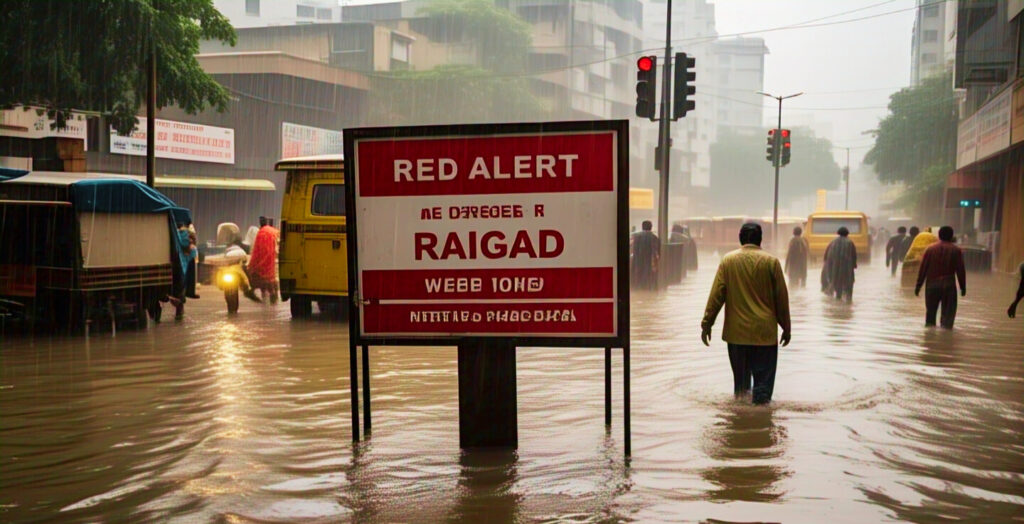Israel-Iran Conflict Escalates: Missile Strikes Hit Tel Aviv and Haifa
In an alarming escalation of tensions in the Middle East, multiple missile strikes reportedly hit the Israeli cities of Tel Aviv and Haifa on Monday amid a new phase of the ongoing Israel-Iran conflict. According to Israeli military sources and international media reports, the attacks came from Iran-aligned forces, prompting urgent retaliatory responses and raising global security concerns.
Missile Attacks Signal Tipping Point in Israel-Iran Conflict
The Israel-Iran conflict reached a tipping point early Monday when several long-range missiles targeted high-density urban zones in Tel Aviv and Haifa. As per reports from BBC and New York Times, initial intelligence indicates that the missiles were launched from positions in Lebanon and Syria, territories where Iranian-backed Hezbollah forces operate extensively.
Israeli defense systems responded immediately, intercepting many of the incoming threats. However, several penetrated the Iron Dome missile defense, damaging infrastructure and causing civilian casualties. Emergency alerts sounded across major cities, urging residents to take shelter as air defense battled the barrage.
Confirmed Impact Zones and Casualties
| Location | Impact Type | Casualties | Damage |
|---|---|---|---|
| Tel Aviv | Direct hit on residential buildings | 17 killed, 120+ injured | Severe structural damage |
| Haifa | Industrial zone strike | 8 injured, factory fire reported | Minor-moderate infrastructure damage |
| Ashdod | Partial interception failure | None reported | Localized power outage |
Global Reactions to Heightened Hostilities
Leaders from Washington,New Delhi, and London have condemned the missile attacks while urging Iran to de-escalate. U.S. President issued a statement declaring unequivocal support for Israel. The United Nations is expected to convene an emergency Security Council session to deliberate on the dangerous developments and potential pathways for deterrence.
Strategic Analysis: What’s Driving the Conflict?
The Israel-Iran conflict has long roots, stretching back decades over nuclear tensions, regional dominance, and ideological divides. However, analysts suggest that recent provocations, including covert operations inside Iran and drone attacks on Israeli diplomatic missions, have provoked a decisive response from Tehran and its allies.
Experts from Al Jazeera and defense analysts on Google Insights have highlighted how hybrid war tactics — a blend of cyber attacks, drone warfare, and missile deployment — have complicated traditional narratives and made the conflict harder to control.
Expert Quote
“What we’re witnessing is not just a clash of missiles, but a battle of ideologies equipped with 21st-century technology,” says Dr. Yaron Levi, senior fellow at the Jerusalem Center for Strategic Studies.
The Civilian Cost of Military Escalations
Across Israel, air raid sirens disrupted daily life as civilians fled into underground shelters. Medical teams are stretched thin, and military reserves have been mobilized. Haifa’s mayor confirmed that schools have closed, while hospitals are operating on emergency protocols. The psychological impact on citizens, especially children, is acute and rising.
Meanwhile, Iranian state media celebrated what they termed as a “retaliatory operation,” stoking nationalist sentiment. This raises concerns about wider regional participation and escalation among allied parties, potentially including proxy groups in Yemen and Iraq. Follow the health impacts of war for deeper insights.
What Happens Next?
The coming days are critical. Israel has vowed a “powerful, strategic response,” and its air force is reportedly preparing for precision strikes against strategic Iranian military assets. Iran’s foreign ministry warned against further action, suggesting it may widen its range of attacks in retaliation.
As calls for peace negotiations intensify, especially from Europe, the Middle East finds itself on the brink. For real-time updates, visit our Breaking News section or follow expert analysis on technology warfare tools now used in the region.
Internal Resources & Related Reading
FAQs on Israel-Iran Conflict and Missile Strikes
What triggered the recent missile attacks on Tel Aviv and Haifa?
The latest attacks appear to be retaliation for covert Israeli actions in Iran and attacks on Iranian personnel in Syria and Lebanon.
Were the missiles launched directly by Iran?
While Iran has not confirmed direct involvement, the weapons are believed to have been launched by Iranian-backed militias like Hezbollah.
How did Israeli defenses respond?
Israel’s Iron Dome system intercepted most missiles, but some managed to strike civilian areas in Tel Aviv and Haifa.
How many casualties have been reported so far?
At least 17 fatalities in Tel Aviv with over 100 injuries across impacted zones have been confirmed.
What is the international response?
Global powers including the U.S. and UK have expressed solidarity with Israel while urging de-escalation.
Could this lead to a broader war in the Middle East?
There is growing concern that continued retaliation could trigger a wider, multi-front regional war.
Are there any peace talks planned?
At present, no direct talks are planned, though the UN has called for an emergency Security Council meeting.
Which Israeli cities were targeted?
Tel Aviv, Haifa, and Ashdod were among the cities hit during the missile offensive.
How is everyday life affected in Israel right now?
Major cities are functioning under emergency protocols with schools shut and public transit disrupted.
How are cyber and drone technologies impacting this conflict?
Both parties are increasingly relying on cyber warfare and advanced drones, intensifying modern warfare dynamics.
Has Iran claimed responsibility?
Iran has praised the actions but stopped short of claiming direct responsibility for the strikes.
Will Israel retaliate?
Israel has already begun planning counter-offensives and vowed a powerful response in coming days.
Are civilian safe zones being set up?
Yes, several bomb shelters and safe zones are operational across targeted cities.
Where can I follow live updates?
You can follow real-time updates on the Breaking News section of Kashmir News.



